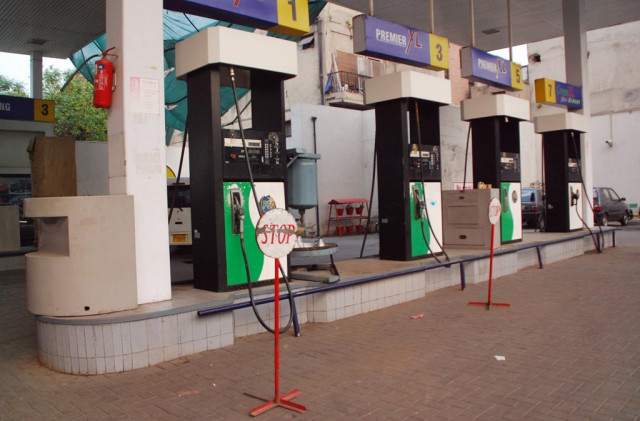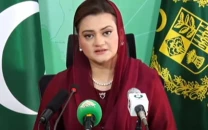Govt leaves petrol, diesel prices unchanged
Increases petroleum levy to absorb impact of price reduction.

Increases petroleum levy to absorb impact of price reduction. PHOTO: RIAZ AHMED/EXPRESS
It increased the petroleum levy in order to absorb the impact of reduction in oil prices.

A day earlier, the Oil and Gas Regulatory Authority (Ogra) had proposed a major reduction in oil prices in line with the global market trend, but the government left unchanged prices of petrol and high-speed diesel (HSD), the main oil products.
However, prices of kerosene oil and light diesel oil (LDO) were reduced. “Kerosene oil is used where liquefied petroleum gas (LPG) is not available whereas LDO is consumed in industrial units but not on a large scale,” an official commented.
In a summary sent by Ogra to the petroleum and finance ministries on Thursday, the regulator had suggested a reduction of Rs3.04 per litre in the price of petrol, Rs4.48 in high octane blending component, Rs5.27 in HSD, Rs4.50 in kerosene oil and Rs4.28 in LDO.
However, according to sources, Finance Minister Ishaq Dar, who met Prime Minister Nawaz Sharif on Friday to discuss the oil prices, opposed any reduction because of financial constraints being faced by the government.
Dar was of the view that they had already given over Rs5 billion in subsidy by keeping oil prices unchanged in January instead of increasing them, and now the impact of lower prices should be absorbed in the petroleum levy.
Therefore, the prime minister decided to leave unchanged prices of petrol and diesel, which are consumed on a large scale especially in vehicles and agriculture sector.
According to officials, the government has enhanced the rate of petroleum levy to the budgeted level. The levy on petrol stands at Rs10 per litre, diesel Rs8, kerosene oil Rs6, HOBC Rs14 and LDO Rs3.
“On petroleum products, consumers are paying two taxes – general sales tax and petroleum levy,” the official said.
The petroleum levy was imposed to collect money for investment in developing the oil sector, but this had been utilised to bridge the budget deficit, he said.
According to a statement issued by the finance ministry, during meeting with the prime minister, it was decided that prices of kerosene oil would be reduced by Rs1.24 and LDO by Rs1.02 per litre while prices of petrol, HOBC and HSD would remain unchanged for February.
Petrol, HOBC and HSD will be sold at the current prices of Rs112.76, Rs141.23 and Rs116.75 per litre respectively. Kerosene oil will be sold for Rs106.76 per litre compared to Rs108 in January and LDO will be available at Rs100.22 per litre against Rs101.24 earlier.
The official pointed out that after the fresh revision in petroleum levy, the subsidy on petroleum products had come to zero. However, the finance minister claimed that in order to maintain the prices of petrol, HOBC and HSD, the government would have to bear a subsidy of around Rs1 billion.
Published in The Express Tribune, February 1st, 2014.
Like Business on Facebook, follow @TribuneBiz on Twitter to stay informed and join in the conversation.



















COMMENTS
Comments are moderated and generally will be posted if they are on-topic and not abusive.
For more information, please see our Comments FAQ